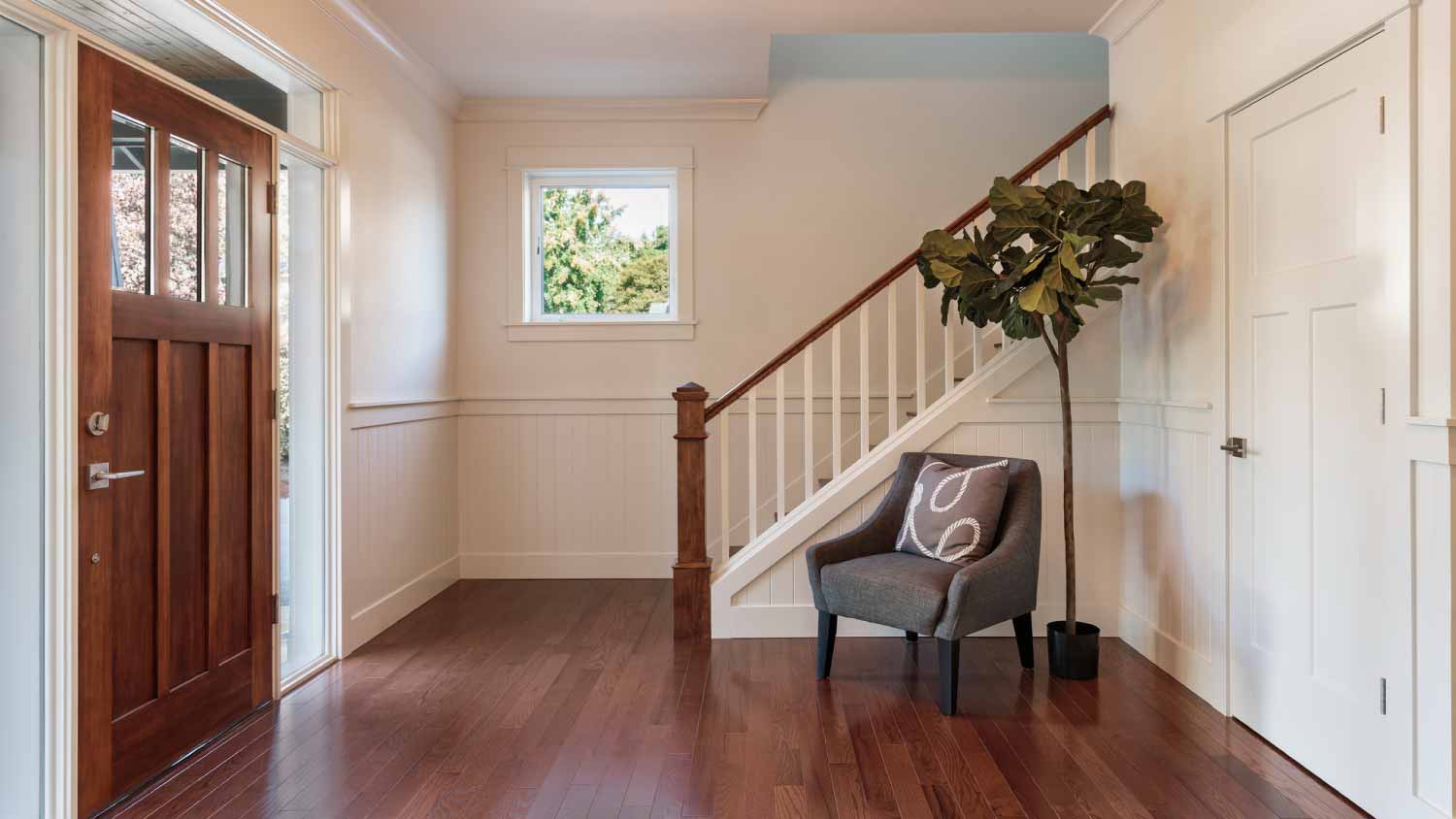Help! My Garage Floor Is Sinking
When your garage floor starts sinking, call up a concrete contractor


For many, a garage is more than just a home for their vehicles; it’s storage for bikes and tools and your home’s most frequented entry point. But when your garage floor begins to sink, it can prevent a major safety issue.
There are a few pros who can help you, but the key is to hire a professional who has experience working with concrete slabs and understands structural components.
Why Is My Garage Floor Sinking?

Just like asphalt driveways, your garage floor can settle and sink over time. Depending on the cause, it can be a quick fix or a major undertaking. There are three main causes for a settling or sinking garage floor: poor construction, improper drainage systems, and displaced soil, including:
Poor construction can cause cement floors to sink and settle more than normal as they age
Faulty gutter downspouts close to the house can accumulate water underneath the concrete slab
Insufficient waterproofing systems can flood the slab causing it to sink and settle
Poorly compacted or expansive soil caused by clay and minerals can affect your garage and your home’s foundation
How Does a Concrete Contractor Repair a Sinking Concrete Garage Floor?
In most cases, a concrete contractor can repair water drainage damage by lifting the floor with a chemical process called mud jacking or slab jacking.
MudJacking
When water damages your cement garage floor, a concrete lifting contractor will likely suggest a repair method called mudjacking, also known as slabjacking. The contractor drills holes into the cement and injects a polyurethane foam that lifts the concrete and aligns the garage floor back to its original position. Then, the pro will patch the holes and cracks. Consider sealing the floor with sealers made of latex, acrylic, or polyurethane, or apply epoxy to help maintain and protect your floor.
Displaced Soil Reparation
Dried out or displaced soil can create a void under the concrete slab and cause it to settle more than is structurally safe. Sadly, fixing these types of soil issues is not so simple. For these scenarios, the contractor will call in a structural engineer to evaluate the structure’s integrity and assess the damage to your foundation. Your contractor might need to install helical piers and piles that underpin the foundation walls. These steel shafts can support thousands of pounds of weight and can strengthen weakened parts of your floor.
Can I DIY My Garage Floor?
Before you call in a professional, it’s important to know who to call for your cement garage floor. In some circumstances, you can repair the floor yourself. A few hairline cracks in the center and edge of the floor could be due to minor settling with age. In this situation, you can likely repair your cement floor on your own.
Just dig out the pieces, clean the area, and patch them with either a mixture of garage floor epoxy and portland cement or concrete crack caulk.
On the other hand, if the slab is built above a crawl space or basement, you’ll need to call in a structural engineer to rectify the situation. If these cracks have appeared on a newly built home, contact your home warranty company.
Benefits of Hiring a Concrete Contractor
It’s tough to know the true extract of cement floors in disarray. At best, hairline cracks are a normal byproduct of settling and curing. At worst, it’s a sign of structural damage and improperly poured concrete. Enlisting the help of a pro is worth the expense to ensure your garage floor is strong and safe enough to withstand vehicles, bikes, and little feet.
While it's tempting to save money by doing this project on your own, it's not a good idea if you aren't experienced with this type of work. Generally, the more expensive a project is, the more you should err toward hiring a contractor—especially if your gut says your floor has moved or sunk considerably. Instead, look for a concrete flooring professional near you. Get a consultation and a quote. It may not cost as much as you think, and it could save you a lot of work and headaches.
Get More Than One Quote
Never speak to just one pro. A good rule of thumb is to get estimates from at least three. Any contractor you talk to will need to see your garage floor to provide an accurate estimate. Interview several contractors to avoid being overcharged. Here are some sample questions:
What’s your estimated timeline for my project?
How many years have you supervised or performed garage concrete repair?
Do you own the equipment for the job or need to rent it?
What time will you arrive and leave the premises?
Do you prefer to communicate by phone, text, or email?
Can I review your project gallery or pictures of past projects?
Verify License, Insurance, and Bonding
Working with a licensed, insured professional is a must. You can verify their licenses on a state website or ask the pro for a copy of their license, insurance, and bonding certificate. The Angi licensing tool can also help you confirm a Pro’s current license status before you hire. If they’re acting dodgy and evasive about providing their credentials, consider hiring another pro.
Do a Background Check
The contractor’s background check will alert you to any red flags such as arrest history, customer complaints, and even lawsuits. Check with the Better Business Bureau for reports filed against the contractor and how they got resolved. References and testimonials from past clients can help verify their claims about being the best pro for the job.
Draw Up a Detailed Contract
Any contractor you hire should provide a contract. Read it carefully. If there’s anything you don’t understand, ask your contractor to clarify before you sign. If you’d like to add anything, request an addendum. At minimum, your contract should include:
Scope of work
Initial deposit amount
Payment schedule
Project timeline
Cost and materials expenses
Warranty
Terms for termination
An itemized list for all charges in the estimate
Keep Detailed Records
Remember always to keep records of every repair made to your home. Prepare a file folder to keep receipts and documents–– like your warranty––in one place. When the project is complete, inspect the garage, ensure the area is clean, and offer to provide a good review for a job well done.

.jpg?impolicy=leadImage)



- How To Build A Garage: Full Guide from Planning to Finish
- Cracked Floor Joist? Here’s Who to Call
- How to Clean the Garage: 11 Tips for Great Results
- 13 Questions to Ask a Concrete Contractor
- Who Do You Hire to Build a Garage?
- Top Tips on Hiring the Perfect General Contractor for Your Next Project
- Top 6 Affordable Garage Remodel Ideas
- When to Worry About Cracks in Your Basement Floor
- A Crash Course for Hiring a Contractor
- How to Epoxy Your Garage Floor in 9 Steps










